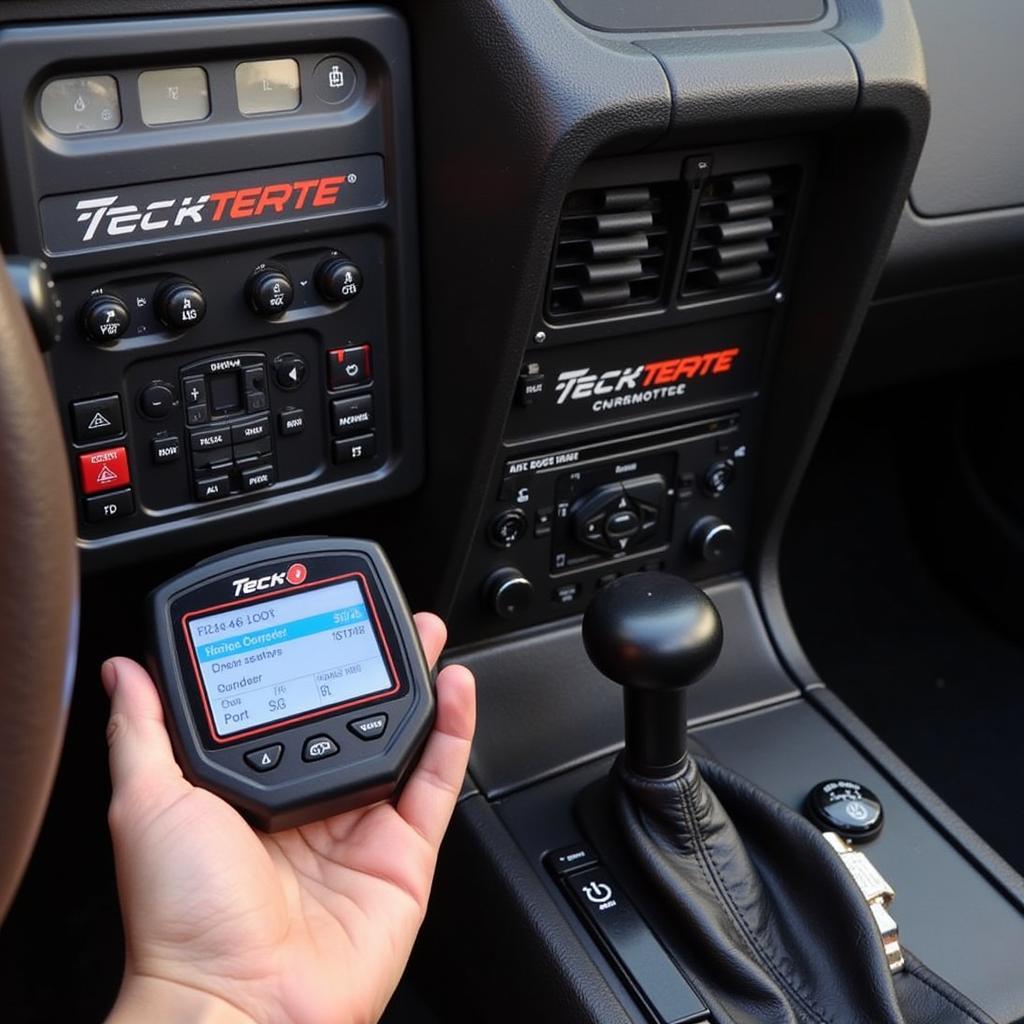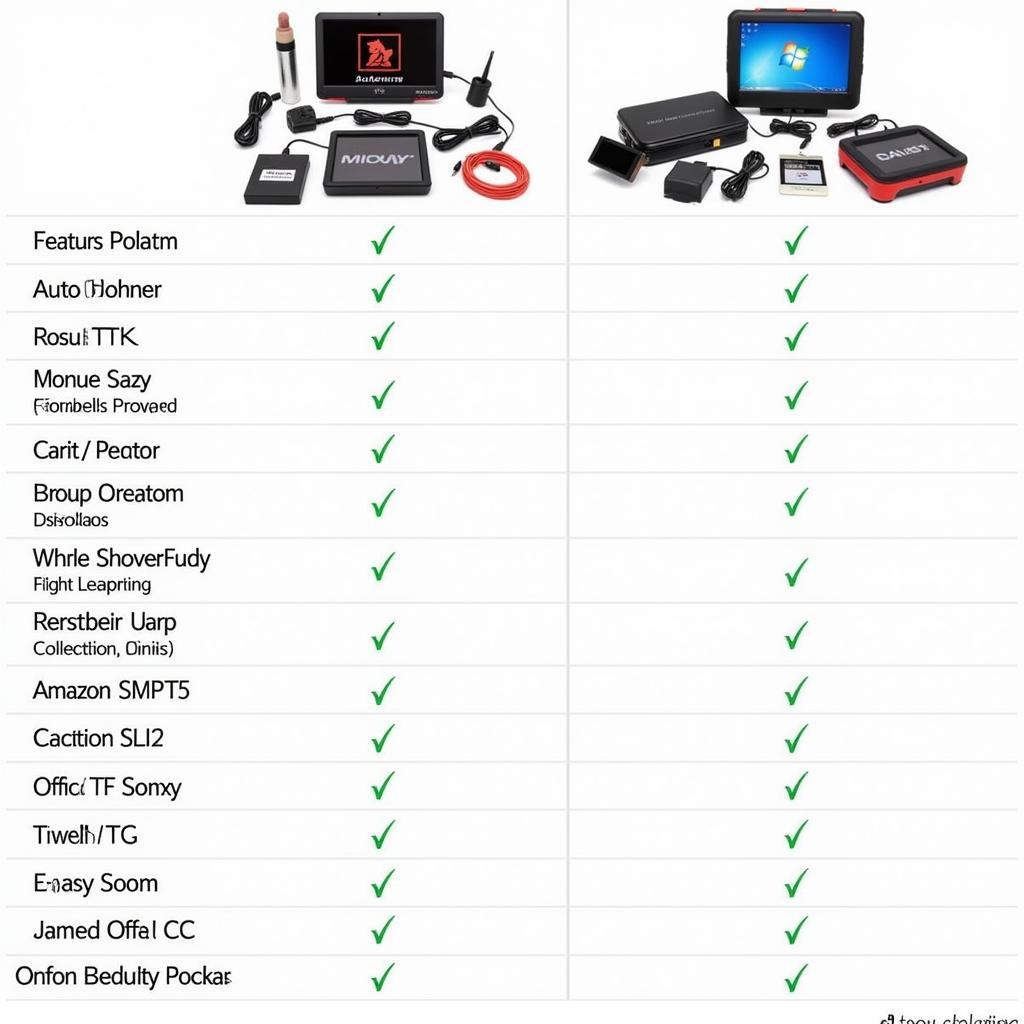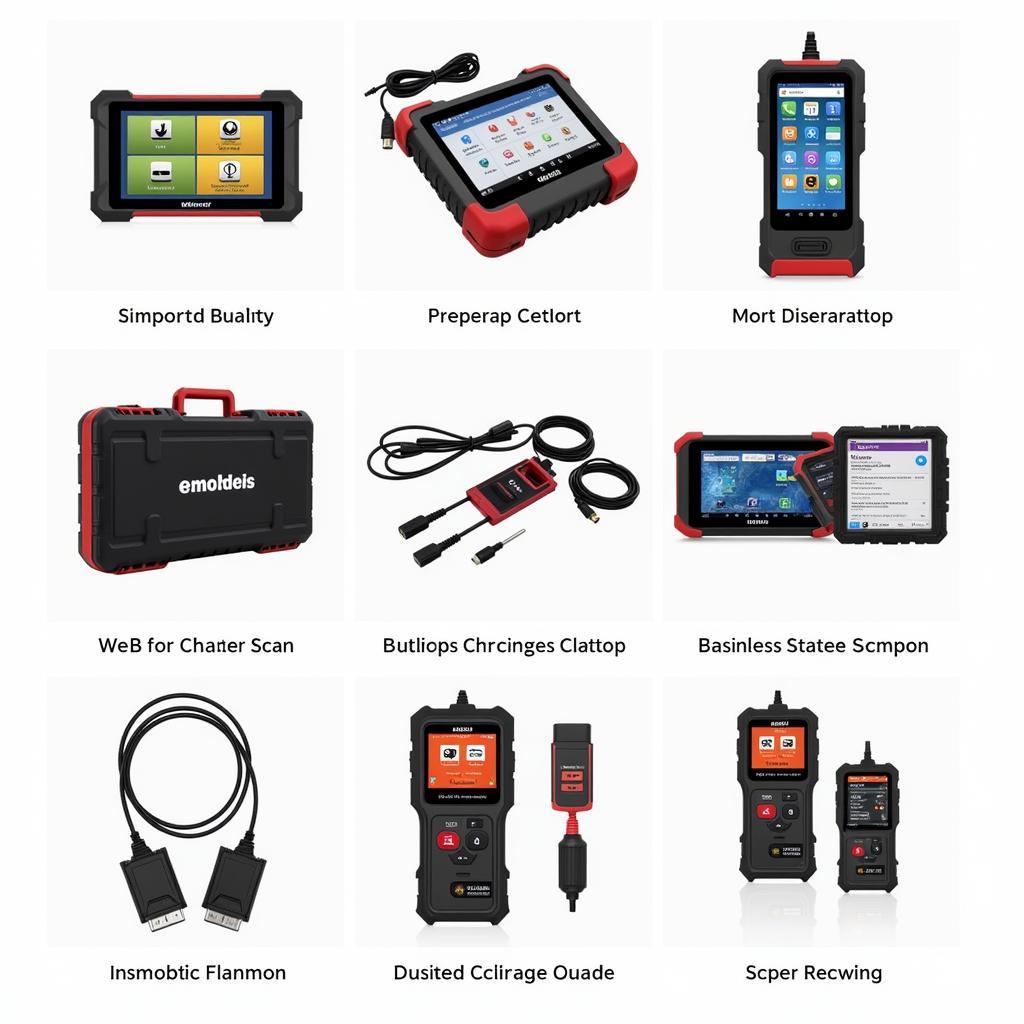Scanning tools have become essential for modern automotive repair. Whether you’re a professional technician, a garage owner, or a car enthusiast, understanding Scanning Tools Benchmarking is crucial for making informed decisions about the right diagnostic equipment. Selecting the appropriate scanner can significantly impact your ability to diagnose and fix vehicle issues efficiently.
Similar to a professional obd2 scanner for heavy duty trucks, effective scanning tools are vital for accurate diagnostics and repairs. This article will delve into the world of scanning tools benchmarking, providing you with the knowledge you need to choose the best scanner for your specific requirements. We’ll cover everything from basic code readers to advanced professional-grade systems, examining their functionalities, benefits, and limitations to help you navigate the often complex landscape of automotive diagnostic tools.
What Factors Influence Scanning Tools Benchmarking?
Several critical factors influence scanning tools benchmarking. These factors help distinguish between different types of scanners and their capabilities, ultimately guiding your purchasing decision. Understanding these factors will empower you to invest in a tool that meets your specific diagnostic needs.
-
Vehicle Coverage: Different scanners offer varying levels of vehicle coverage. Some are designed for specific makes and models, while others provide broader compatibility across multiple vehicle platforms. Consider the types of vehicles you typically work with to ensure the scanner you choose offers comprehensive coverage.
-
Diagnostic Capabilities: Scanning tools range from basic code readers that simply display fault codes to advanced systems capable of bi-directional control, live data streaming, and specialized functions like key programming and module coding. Assess your diagnostic needs and choose a scanner with the appropriate capabilities.
-
User Interface and Software: A user-friendly interface and intuitive software are crucial for efficient diagnostics. Look for scanners with clear navigation, easy-to-understand data displays, and regular software updates to ensure compatibility with the latest vehicle technologies.
-
Durability and Build Quality: Automotive repair environments can be demanding. A robust and well-built scanner is essential to withstand the rigors of daily use. Consider factors such as shock resistance, water resistance, and overall build quality when evaluating different scanners.
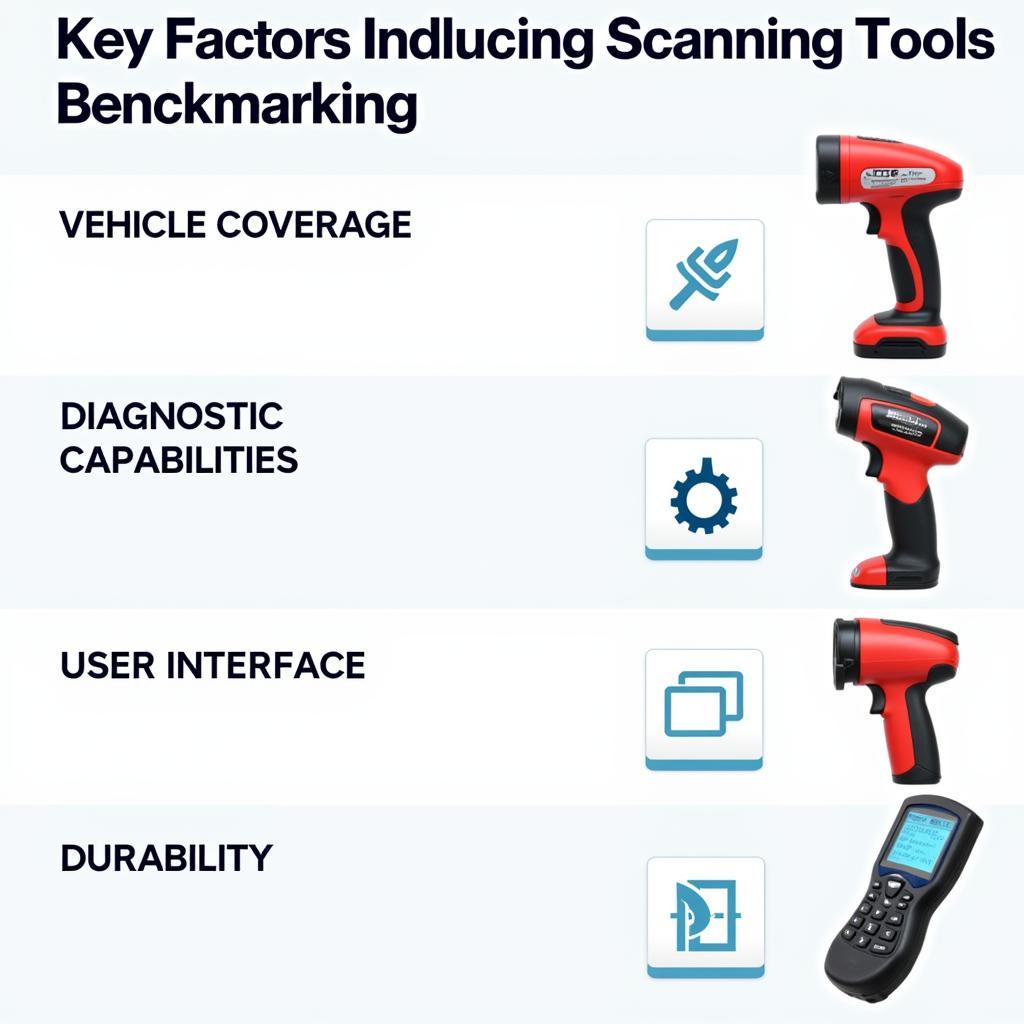 Key Factors in Scanning Tools Benchmarking
Key Factors in Scanning Tools Benchmarking
How to Effectively Benchmark Scanning Tools?
Benchmarking scanning tools involves a systematic comparison of different models based on predefined criteria. This process allows you to evaluate the strengths and weaknesses of each scanner, helping you identify the best fit for your specific needs.
-
Define Your Requirements: Start by clearly defining your diagnostic requirements. Consider the types of vehicles you work on, the complexity of repairs you undertake, and your budget constraints.
-
Research Available Options: Thoroughly research the available scanning tools on the market. Read reviews, compare specifications, and watch demonstration videos to gain a better understanding of each scanner’s features and functionality.
-
Create a Comparison Chart: Develop a comparison chart listing the key features and specifications of each scanner you’re considering. This will allow you to easily compare different models side-by-side and identify the best value for your money.
-
Hands-on Testing: Whenever possible, try out different scanners before making a purchase. Hands-on testing allows you to experience the user interface, assess the software’s intuitiveness, and evaluate the scanner’s overall performance.
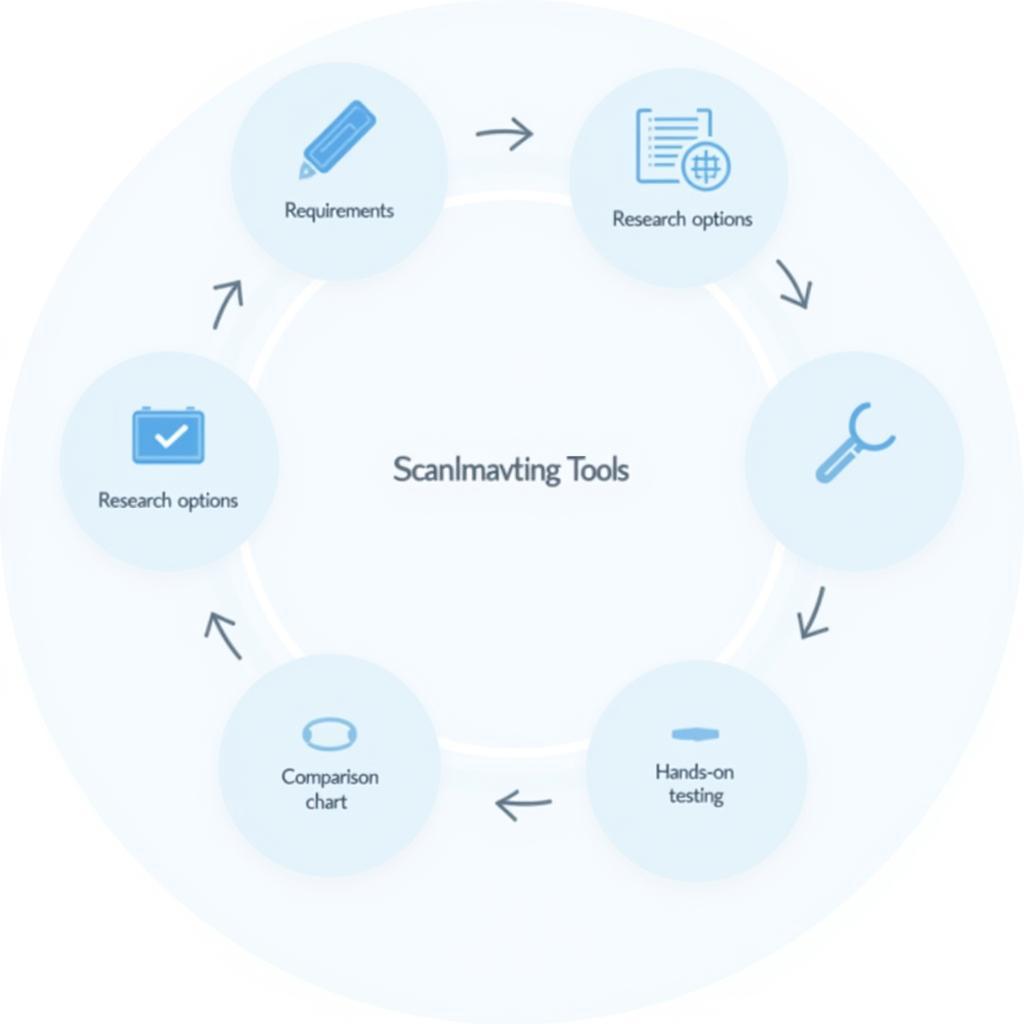 Effective Process for Benchmarking Scanning Tools
Effective Process for Benchmarking Scanning Tools
Understanding the Different Types of Scanning Tools
The automotive diagnostics market offers a wide array of scanning tools, each designed for specific applications and user needs. Understanding these different types is essential for effective benchmarking.
-
Code Readers: Basic code readers are entry-level tools primarily used to retrieve and clear fault codes. They offer limited diagnostic capabilities but are often more affordable than advanced scanners.
-
OBD-II Scanners: OBD-II scanners offer more advanced features than basic code readers, including live data streaming, freeze frame data, and the ability to monitor sensor readings.
-
Professional Scan Tools: Professional-grade scan tools provide comprehensive diagnostic capabilities, including bi-directional control, module coding, key programming, and advanced functionalities like oscilloscope and multimeter integration.
What are the Benefits of Scanning Tools Benchmarking?
“Benchmarking allows technicians to make informed decisions about their diagnostic tools, leading to increased efficiency and improved repair outcomes,” says automotive diagnostics expert, Robert Hernandez, ASE Certified Master Technician. This process offers numerous benefits for both individual technicians and repair shops.
-
Informed Purchasing Decisions: Benchmarking empowers you to make data-driven decisions about your diagnostic tool investments, ensuring you choose the right scanner for your needs and budget.
-
Improved Diagnostic Efficiency: Using the right scanning tool can significantly improve your diagnostic efficiency, allowing you to identify and resolve vehicle issues faster.
-
Enhanced Repair Accuracy: Accurate diagnostics lead to more effective repairs, reducing the likelihood of repeat repairs and improving customer satisfaction.
Conclusion
Scanning tools benchmarking is a crucial process for anyone involved in automotive repair. By understanding the different factors influencing scanner performance, effectively comparing available options, and choosing the right tool for your needs, you can significantly enhance your diagnostic capabilities and improve the efficiency of your repair processes. Investing in the right scanning tool is an investment in your future success.
We encourage you to connect with us for personalized guidance and support in choosing the perfect scanning tool for your needs. Contact ScanToolUS at +1 (641) 206-8880 or visit our office at 1615 S Laramie Ave, Cicero, IL 60804, USA.

